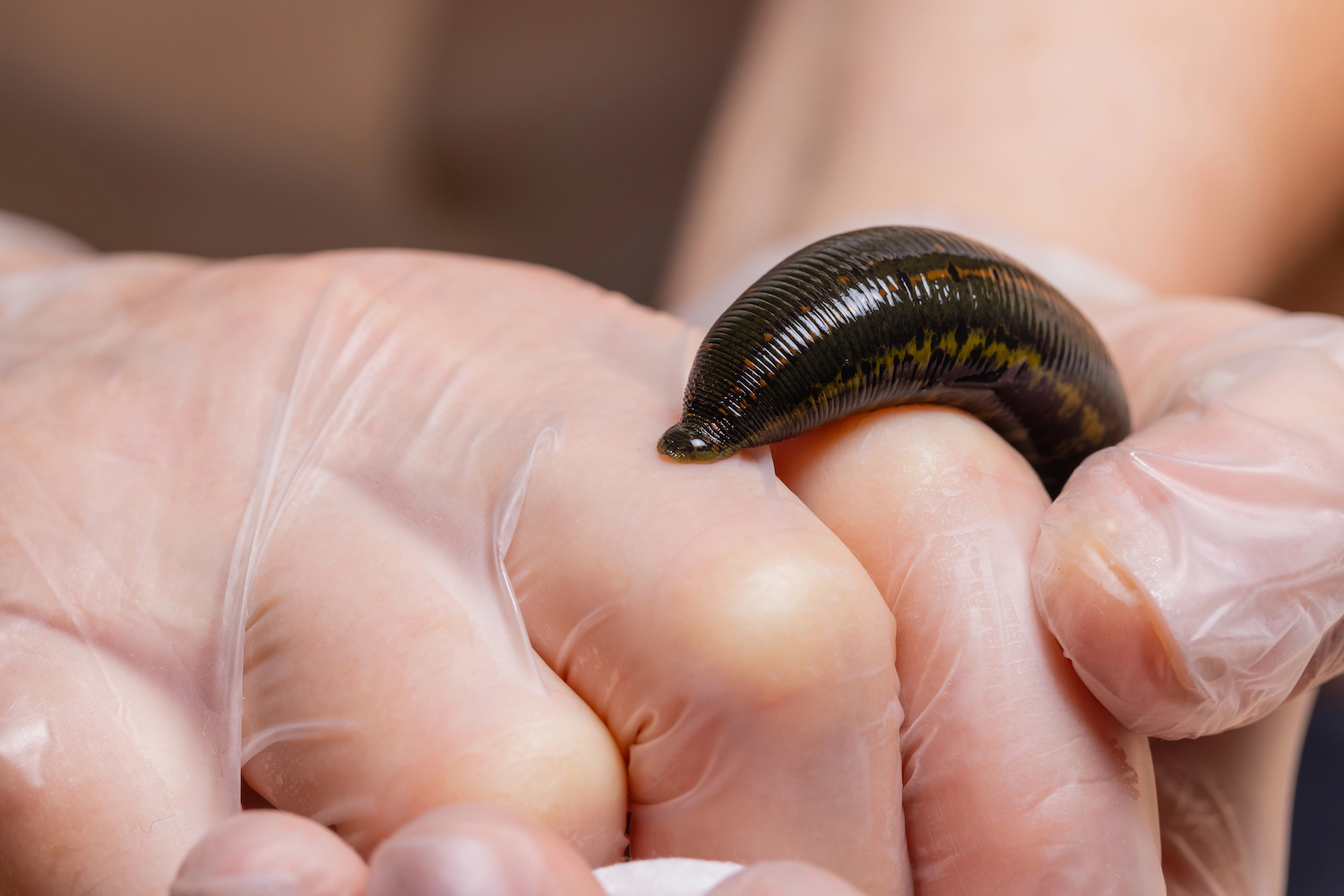Enlargement of the prostate gland most commonly occurs in men after age 50. Although health awareness in society is increasing and access to medical services is relatively easy, many men trivialize the problem. Untreated prostate enlargement can lead to a series of serious complications, including urinary tract infections, kidney problems, and even permanent urinary retention.
The good news for all men struggling with prostate enlargement is that this condition can be treated. One of the methods used in the therapy of an enlarged prostate gland is leech therapy. Leech therapy can also be used as a preventive measure. Find out how leeches can help in the treatment of prostate enlargement.
What is the prostate?
The prostate, also known as the prostate gland, is a part of the male reproductive system. It is the size of a walnut and is located around the urethra just below the bladder. Like any other gland, the prostate’s function is to produce and secrete specific substances, more precisely, a fluid that is the main component of male semen, which contains sperm.
What is prostate enlargement?
The location of the prostate gland means that it can affect the functioning of the urinary system. While this does not occur in young men, it does in older ones. The reason for this is the gradual enlargement of the prostate after reaching 45-50 years of age. This condition is referred to as benign prostatic hyperplasia. It is the result of hormonal changes that occur in a man’s body. The enlargement progresses gradually and can last for several years. The enlarged prostate increasingly constricts around the urethra, leading to a series of disturbing symptoms.
Symptoms of prostate enlargement
It is estimated that prostate problems affect every second man in the age group of 50+. Thus, this problem is quite common. It is essential to know the symptoms it causes to consult a doctor in time and start treatment.
Typical symptoms of an enlarged prostate include:
– Constant strong urge to urinate,
– Nighttime awakening to empty the bladder,
– Weak urine stream and inability to empty the bladder,
– Weakening of the urine stream towards the end of urination,
– Interrupted urination,
– Effort required to urinate,
– Difficulty starting urination,
– Feeling of constant pressure on the bladder and incomplete bladder emptying,
– Increased frequency of urination,
– Pain and burning during urination,
– Traces of blood in the urine,
– Complete urinary retention.
Causes of prostate enlargement
The leading cause of prostate gland enlargement is identified as the ageing process of the body. With age, testosterone levels drop, which deregulates hormonal balance and leads to hormonal disturbances. Consequently, this leads to the proliferation of prostate gland tissues. Additionally, an inappropriate diet containing high amounts of saturated fatty acids can influence prostate diseases. It is also suspected that in some, prostate gland problems may have a genetic basis.
Risk factors for prostate gland enlargement
Factors that may contribute to the development of prostate diseases include:
– Improper diet,
– Lack of physical activity,
– Overweight and obesity,
– Inflammatory conditions of the urinary system,
– Venereal diseases,
– Sexual abstinence,
– Alcohol abuse,
– Excess of spicy spices,
– Chronic stress.
With this in mind, avoiding bad habits and caring for one’s health daily is essential.
Treatment of prostate enlargement
Observing symptoms indicative of prostate enlargement is a reason to schedule a visit with a urologist and undergo examinations. Treatment eliminates bothersome symptoms, thereby improving the quality of life and protecting against serious diseases.
In the therapy of benign prostate enlargement, mainly medications are used, and in more severe cases, surgical treatment may be necessary. Leech therapy can also support traditional forms of treatment for an enlarged prostate gland.
Leech therapy and prostate enlargement
For the prevention of prostate problems, as well as for the treatment of its enlargement, leech therapy can be utilized. Applying leeches in the area of the gland leads to improved blood flow to this region. The secretion from the salivary glands of these tiny creatures has analgesic and anti-inflammatory effects, thereby reducing pain and alleviating inflammation. It contains hormones, including testosterone, which significantly impacts the development of ailments, as well as cortisol, progesterone, and estradiol, which have a beneficial effect on the hormonal system.
Leech therapy should be used only after consultation with a urologist and a leech therapy specialist. Leech therapy should not replace conventional treatment. This method cannot be used in the presence of any contraindications (e.g., fever, haemophilia, or HIV infection).

